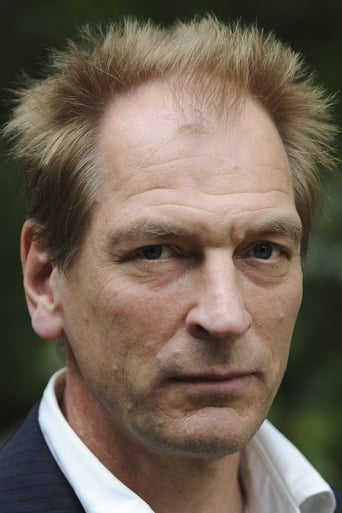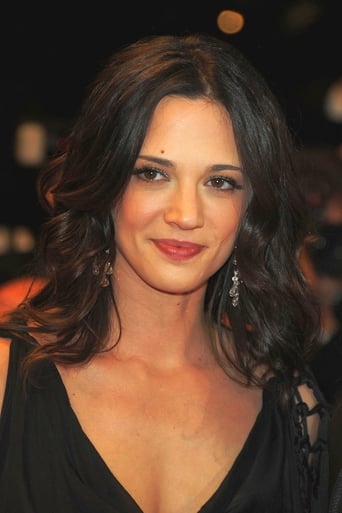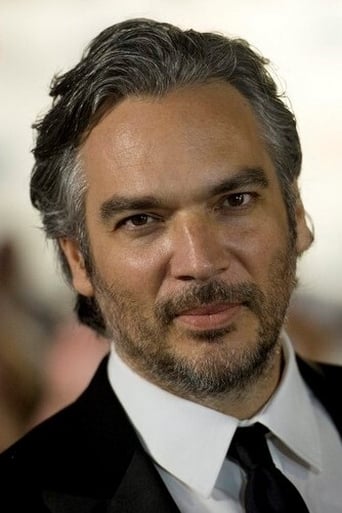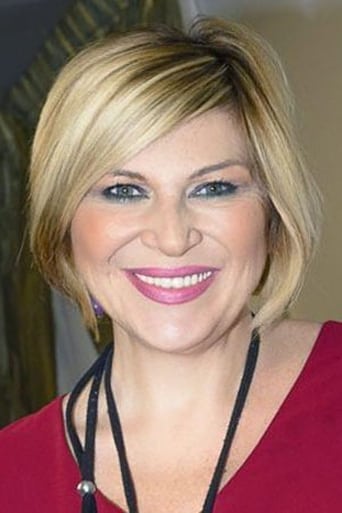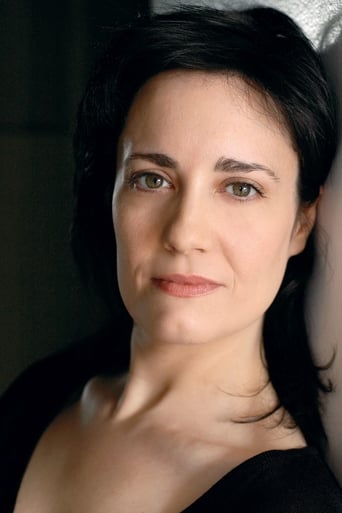Hellen
I like the storyline of this show,it attract me so much
Cubussoli
Very very predictable, including the post credit scene !!!
Exoticalot
People are voting emotionally.
Philippa
All of these films share one commonality, that being a kind of emotional center that humanizes a cast of monsters.
morrison-dylan-fan
Counting down the days to my birthday,I decided that I would watch a double bill. Picking The Evil Dead 3 as the second flick. I took a look at the remaining works of auteur Dario Argento I had left to watch. Initially just finding the "workprint cut" of Trauma and his "live Opera" Macbeth, I spotted that I had never seen his Phantom adaptation,which led to me booking a ticket for the opera.View on the film:Going historical for the first time since the very interesting, 1973 non-Horror/non-Giallo The Five Days of Milan, co-writer/(with Gérard Brach & Giorgina Caspari) director Dario Argento reunites with Opera's cinematographer Ronnie Taylor (who also worked on Phantom adaptations Popcorn and Phantom of the Paradise) aim for an epic Gothic Horror,complete with a magnificent Opera house and winding catacombs. Working on a healthy budget,Argento (who throws sex scenes between the Phantom and his own daughter in to up the sleaze factor!)becomes unsteady in reaching the grandiose ambitions,as the stylisation of camera moves is pulled to focusing on rubbery gore effects, and the lighting is dimmed to the point of the impressive locations being covered in pitch darkness.Whilst losing the directing ambitions he had shown in Opera,the screenplay by Argento/Brach and Caspari brings to the front one of Argento main themes across his work,via the parental (and sexual!) love the Phantom has for the rats that raised him.
Following the path in his directing,the writers appear undecided over what direction to take this loose adaptation, where the would-be sweeping romance between Phantom and Christine lacks any feeling of passion,and the bonkers, rat catcher surges into Gothic Horror (that would be the main element in Argento's next historical Horror: Dracula)are clipped before they become fitted into the mask of the movie. Joined by a sultry Asia Argento as Christine, Julian Sands tries to give the Phantom a brooding, Dracula-style allure,but fails due to Sands being extremely timed in digging his rat fangs in,and lifting the curtain on the phantom of the opera
Leofwine_draca
Right from the start you can tell that Argento hasn't lost his touch, with a distinctively unique approach to the colouring of his film which gives it a real period look and feel. And, right from the start, you realise that this isn't going to be one of Argento's best movies. Far from it in fact: it is a film many, many people consider to be his worst film, at least to date. I'm afraid I have to join that camp because there is almost nothing of any worth in this disjointed mess, full of poor judgements and a lack of intelligence all-round. Argento introduces unwanted moronic humour when he should be going for scares, gives us a tragic ending even though its completely unwarranted - why should we suddenly start caring about the Phantom after all his crimes and gore murders? - unbelievable character actions - what is it with Christine? Talk about a love/hate relationship... - extremely poor acting (Argento has never got the best performances from his cast, but this is something else) and dodgy digital effects all over the place which detract from the visual appeal.Sick comedy is something you don't usually find in Argento's movies, but you'll see it in abundance here. Whether the Phantom is ripping the breast of an opera diva or a young girl is being chased through the catacombs by a would-be paedophile, Argento badly misjudges his scenes making for an often distasteful and tasteless movie. The silly comic interludes ruin any attempt at dramatics and one has to wonder whom exactly Argento was aiming at with the introduction of a comic sidekick dwarf (yes, even in a film this recent), intelligent rats, and, in the nadir of his whole career, a rat-shredding machine which drives along and sucks up rats through a huge vacuum cleaner hose at the front. Any fan of Argento's classic gialli movies will simply shake their head at the sorry state of Argento's current directorial career.Acting-wise, the film is dreadful, especially Asia Argento (yes, the girl who was pretty effective in THE STENDHAL SYNDROME) who is just embarrassing as Christine - Dario really doesn't know when to reign in his daughter's overacting and you can't help but feel sorry for somebody when you know they're capable of far more than this. Julian Sands seems to have lost the ability to be naturally creepy like he was in the early '90s and his Phantom is more of an impish wimp than a scary screen horror icon. Bad miscasting alert there! As for the supporting Italian cast, well once again there are fresh-faced youngsters whom you don't give two hoots about and forget instantly once the film is over (what happened to all the up-and-coming actors and actresses that used to star in films and stay in your mind?) and annoyingly whiny female characters the likes of which haven't been seen since the Universal horror cycle of the '30s and '40s, like the stupid maid.Mind you, the script has such bad characterisation and dialogue that you can't pin the blame entirely on the cast. Then there's Ennio Morricone, usually somebody you can rely on for some good music, putting in a score so bland and unnoticeable it's a mystery why Argento hired him in the first place. The famous Argento set-pieces are in short supply here, with the exception of the notorious "chandelier" sequence which should be horrific and instead, incredibly, is played for laughs. Has Argento really lost touch with his audience this much? The computer effects work is lamentable, particularly a really lame "fantasy world" sequence which is so unconvincing as to be downright laughable.Thankfully Argento has stuck with Sergio Stivaletti who supplies some nicely juicy gore effects once again which don't disappoint, including bodies torn in two, a small but excellent effect of a bone protruding from a guy's thumb, tongues being torn out, decapitations, and a stand-out impaling on a stalagmite. Unfortunately these are usually shown in brief only with quick jump-cuts away but you have to make do with what you get in a film this poor. All serious film fans and Argento fans should give this a wide berth, and curiosity-seekers are better off looking elsewhere for entertainment. The only people who should watch this are those looking to write about it such as this unfortunate reviewer...
rosedestler
It is unfair to give this movie a rating of one for it does have its moments, though these moments are few and far between. The acting is impossibly bad and the story makes little sense. Oh the main premise is their, beautiful opera singer catches the attention of a mysterious man who lives under the opera house and a young nobleman who doesn't, but that's about it. Despite it's appearance on the cover the phantom does not wear a mask, probably due to his lack of disfigurement., instead he was raised by rats. This does not explain how he learned to talk so eloquently or play an organ so well, but perhaps it explains his telekinetic powers (I kid you not) and the fact he cheats with Christine in a scene, which will turn your stomach.While beautifully shot and by the Italian master of horror, this is a film you can miss quite happily, though it does have it's amusing moments. If you do decide to check it out, maybe you're a film studies student, there is one thing I will mention waiting for..the ratmobile!
Graham Greene
Argento's work has often been criticised for its violence, portrayal of women and the apparent emphasis on style over substance. In most cases, these criticisms do hold some weight, but to look at them outside of the context of the world that he creates and the characters that he focuses on is somewhat unfair. Argento's work, regardless of content or theme, is pure cinema, and when done right, results in unforgettable films like The Bird with the Crystal Plumage (1970), Deep Red (1975), Suspiria (1977) and Tenebre (1982). Many fans and critics would argue that his more recent work over the last twenty years has failed to reach the same creative level of those particular films - and they would be correct, to an extent - but for me, there's simply no way that he's made a film that comes close to the level of this particular "reimagining" of Gaston Leroux's perennial classic, The Phantom of the Opera (1998).Now, as a general rule, I don't like to write negative reviews for films. I find it adolescent. There are so many fantastic films out there that are rich in imagination, style, character and intelligence that it seems almost counterproductive to waste time highlighting only the negatives. However, I feel I must contradict this notion somewhat with this review of the film in question, simply because I find it hard to believe that one of my very favourite and most well respected filmmakers could produce something as awkward, odd and downright incomprehensible as this. For me, the film was dull and sorely misguided. There's very little of Argento's once famous approach to cinematography, editing and production design, with a largely flat presentation that looks like a low-budget television drama, similar to that awful BBC adaptation of Tipping the Velvet (2002); which featured a similarly backroom recreation of a related time period. It's more surprising given the fact that the cinematographer here was Ronnie Taylor, who did such a fantastic job with Argento's earlier hit, Opera (1987), and would later create that exhilarating opening sequences for the director's subsequent film, the back-to-basics shocker Sleepless (2001).The film also suffers from a turgid script, poor performances, weak direction, obvious effects and some woeful lapses in judgement. I certainly respect Argento as a filmmaker, attempting to take the basic formula of The Phantom and do something a little different with it, but here the changes are silly and sometimes quite embarrassing. The subplot with the rats for example could have worked, and indeed, think about that great scene in his earlier film Inferno (1980) with the antiques dealer in central park. However, here it seems ridiculous and only adds to the more comedic characterisation of the phantom as a brooding, Mills and Boon style fop. Asia isn't as bad in the central role of Christine - moving confidently between the light and dark aspects of youthful naivety and pent up sensuality as she is courted by the ultimate in seductive evil - but by the end, the role was so underwritten that she simply could not elicit the right level of empathy and emotion from the (by now) somewhat jaded viewers. Obviously, if you enjoy the film, then I don't want to take that away from you, but as a long-time admirer of Argento's work, this was a real disappointment.Regardless of what you say about The Stendhal Syndrome (1996), Sleepless and The Card Player (2005), those films at least offered flashes of the old Argento magic; with tense, stalk-and-slash plot structures that brought to mind his giddy Giallo thrillers of the 1970's, unobtrusive use of camera and editing, and some fine performances from a variety of well known and well respected actors. The Phantom of the Opera lacks any traces of Argento's talent as a director of exceptional genre cinema, as he creates a cheap-looking film that is badly acted, poorly structured and sadly misjudged from the very beginning. Some have found an added camp value in the presentation and approached the film on that level, which I suppose could work, but anyone looking for the Argento of Deep Red or Tenebre to offer us a dark, disturbing and coolly self-aware interpretation of Leroux's themes of tragedy, obsession, madness and beauty will be sorely disappointed.

